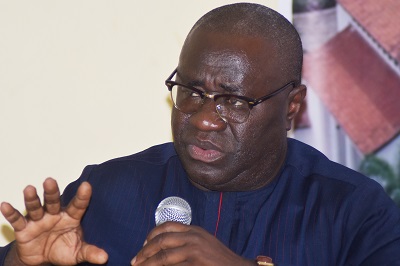Renowned security analyst and expert, Prof. Kwesi Aning, has voiced sharp criticisms of the current leadership of the New Patriotic Party (NPP), describing it as a departure from the values and principles that once defined the party’s legacy.
Speaking on TV3 during a discussion on the results of the 2024 general elections, Prof. Aning lamented what he called the erosion of respect, dialogue, and inclusivity within the party under its present leadership.
He argued these shortcomings are widespread and attributed them to the leadership of President Nana Addo Dankwa Akufo-Addo and his administration.
Reflecting on the history of the NPP, which traces its roots to the United Gold Coast Convention (UGCC) and other political traditions, Prof. Aning said:
“The NPP of the last eight years is not the NPP that we know… This NPP does not share the principles and values of the Danquahs and Busias.”
He emphasized that respect, consensus-building, and empathy—once hallmarks of the party—are now conspicuously absent.
Prof. Aning contrasted the current government with that of former President John Dramani Mahama, expressing a personal sense of safety during Mahama’s tenure.
“Under President Mahama, I slept well. I wasn’t afraid,” he said, referring to personal security during Mahama’s administration.
He further noted the openness of Mahama’s government to criticism, recounting his interactions with Dr. Benjamin Kunbuor, a former Defense Minister.
“Even when I was super critical, Dr. Kunbuor would come to my office, and we’d have robust conversations. There was a space for engagement and reflective thinking,” he said.
Addressing the voting trends in recent by-elections, Prof. Kwesi Aning pointed to protest votes and abstentions in the Ashanti and Greater Accra regions as indicative of public dissatisfaction.
He argued that voter behaviour signals a demand for more inclusive and participatory politics, cautioning political parties against arrogance.
Prof. Aning urged political parties to adopt a more people-centred and enterprise-driven approach to governance and warned against misinterpreting electoral victories as unconditional endorsements.


